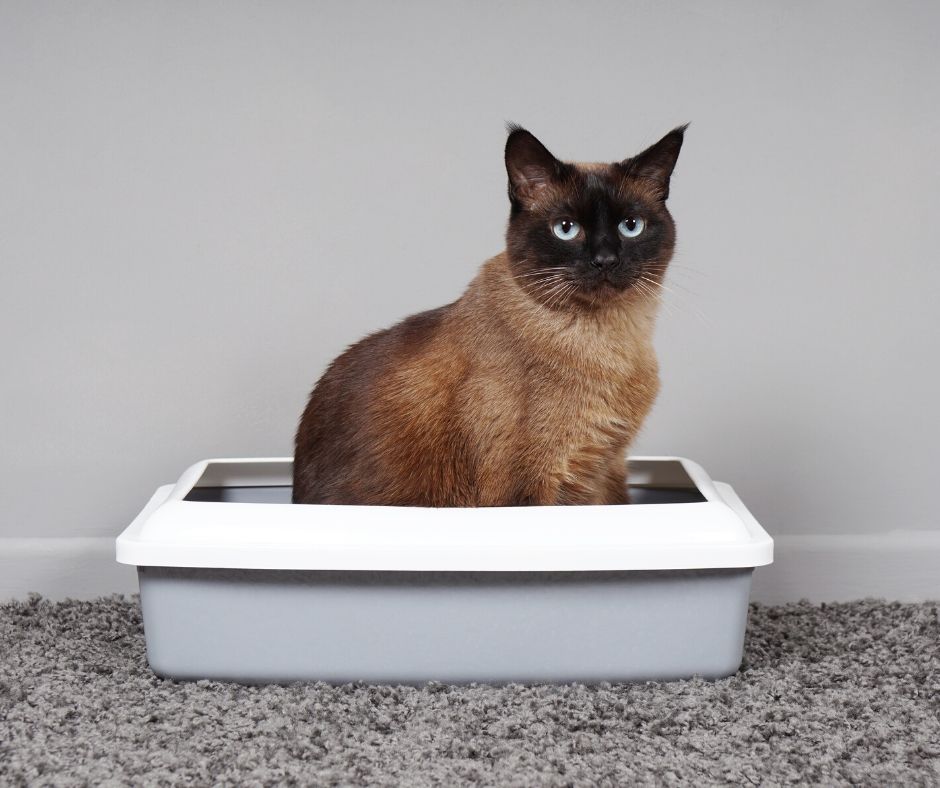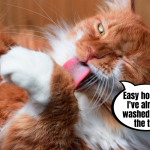Cats rarely let their Caregivers know that something undesirable is happening to their health. Often, clear symptoms appear when the condition develops and are difficult to cure. Unfortunately, some of them are dangerous to the lives of furry friends. Such often turn out to be problems with kidneys performing extremely important functions in the body. And here we bow to prevention, which we often mention when writing our blog, because only it gives us a chance to detect a possible disease in its initial stage.
When and what tests should be performed?
In the diagnosis of kidney diseases, blood and urine tests are particularly important and should be performed every year when the cat is younger, and every 6 months for purrs older than 10 years. They should not be forgotten especially by Carers of older cats, because it is older cats that are most vulnerable to health problems.
We should be concerned about elevated urea and creatinine in blood, indicating problems with the urinary system. Elevated protein levels in urea may also be a symptom of problems – healthy kidneys do not allow it to pass through. We should also do tests immediately if your cat already has symptoms of the disease. If you confirm a kidney condition, you should also have an ultrasound and X-rays to assess the condition of your organs.
Symptoms of kidney disease in cats
Initially, without tests, it is difficult to notice kidney problems in a cat. The symptoms in purrs appear late – most often when the organs are already damaged in about 75%. Then your cat may lose appetite, drink more, urinate frequently and become apathetic. Symptoms are also vomiting and the strong weakness that follows. Kidney disease can also manifest itself in diarrhoea and emaciation, caused by anaemia. An ailing cat’s coat also looks worse than normal – it becomes dull and has discolourations.
If you suspect your cat has a kidney disease, look for the smell of her muzzle. If it’s unpleasant, take a closer look at your cat as this smell indicates the presence of urea. Symptoms also include any sores and inflammation of the mouth and gums. At a later stage, even the fur of a purr can smell of urine. These are signals that should force every cat’s parent to visit the clinic and do blood and urine tests.
If you notice one of the following vigilante symptoms, contact your vet:
- Decreased appetite
- Increased thirst
- Frequent or no urination
- Blood in urine or cloudy urine
- Vomiting
- Bad hair
- Torpor and depression
- Loss of weight
- Ugly breath
- A sore muzzle or ulcers in the muzzle
- Diarrhoea or constipation
- Sleeping for longer
Prevention and treatment of kidney disease in purriers
Everyone knows that prevention is better than cure. That’s true for the purr too. The only way to protect your cat’s health is through proper prevention, which is regular check-ups. To prevent disease, you should also give your furry friend only good quality food and make sure she always eats the right amount of water, which some purrs have a problem with. The likelihood of getting sick also increases your pet’s frequent exposure to stress.
If your cat is already ill, she should be under constant vet supervision. Special medication, as well as injections and doses are required. Depending on how the disease is progressing, the vet may also choose to treat her with symptoms. At this point in time, a diet adapted to the animal’s needs also plays a key role.
There are possible therapies:
- Treatment of the primary cause of kidney failure (e.g. toxins);
- Medicines to support urine production;
- Therapeutic diet;
- Electrolyte disturbance management;
- Liquid Therapy;
- Correction of anaemia;
- Medicines for high blood pressure, vomiting or gastrointestinal problems.
Care of a sick cat and he’s diet
A sick cat particularly needs the care and attention of its Caretakers. Because of the amount of medication and the way it is administered, purring is often very stressful. Try to keep them calm and relaxed wherever possible.
If your cat has kidney problems, proper feeding can have a positive effect on her life and potentially extend it. If you want to take good care of your friend who has a kidney problem, you should provide her with a low-protein food that will help with the treatment and provide her with essential vitamins and minerals. When looking for the right food, pay attention to low levels of phosphorus and an appropriate ratio of omega-6 and omega-3 acids, which should be 5:1 to support the treatment of inflammation. If you have a sickly purr at home, you should also make sure your cat always has access to clean water, as her thirst may be much greater than before. It’s better to put two or three more bowls of water in different places in the house – this increases the chance of your cat taking advantage of a watering hole.
It’s very easy to overlook the first signs of illness. However, if you do notice them – applaud! – You have a much better chance of curing your cat’s friend, so never underestimate them. Your cat’s kidney failure can develop very quickly and sometimes it can be too late to save her. So if you notice any worrisome symptoms, you should see your vet immediately.
Be diligent with your cat, following the diet recommended by the vet. Remember to have access to clean, fresh water, stay calm in your home and try to reduce your stress. Remember to keep your cat’s current and routine check-ups as recommended by your vet. Prevention will give you the chance to discover your first abnormalities, and therefore a longer and happier life for your cat’s fur.
Do you have any experience with cashews? What is your daily routine and prevention during treatment? Please share your knowledge with us in the comments.




